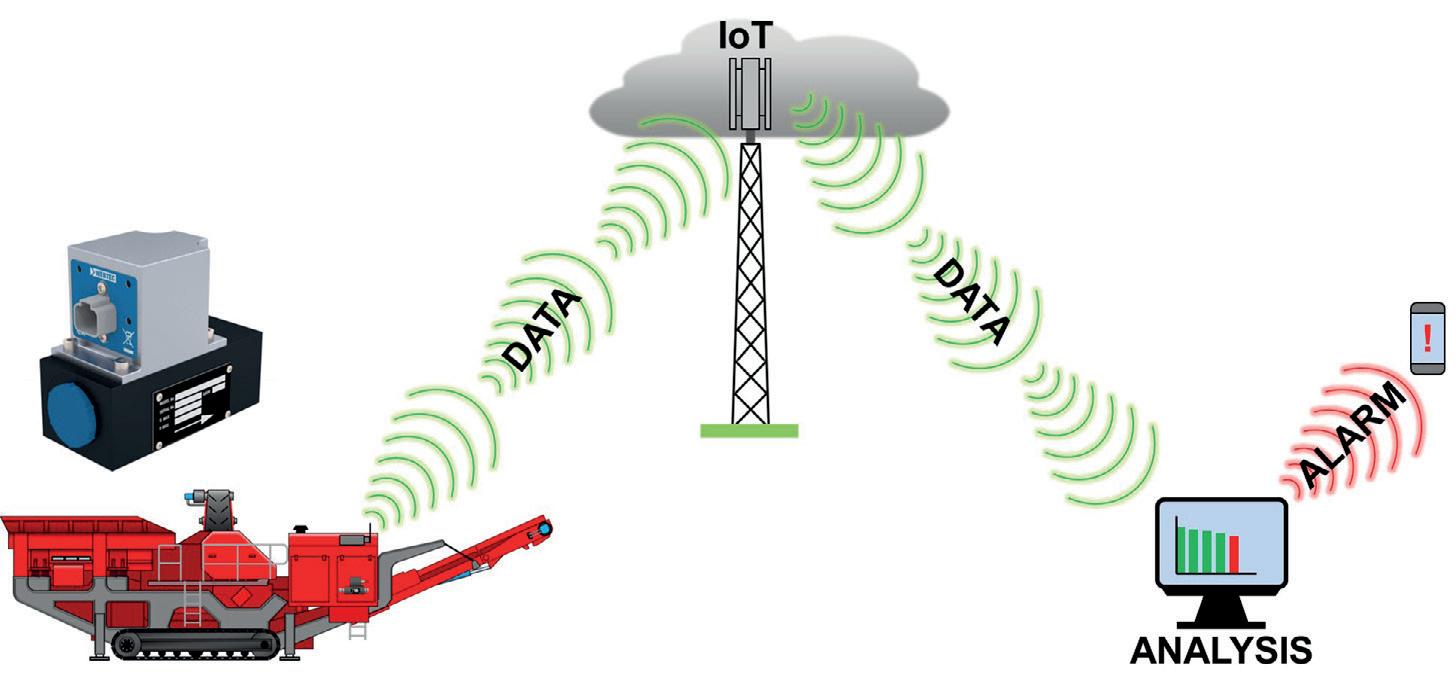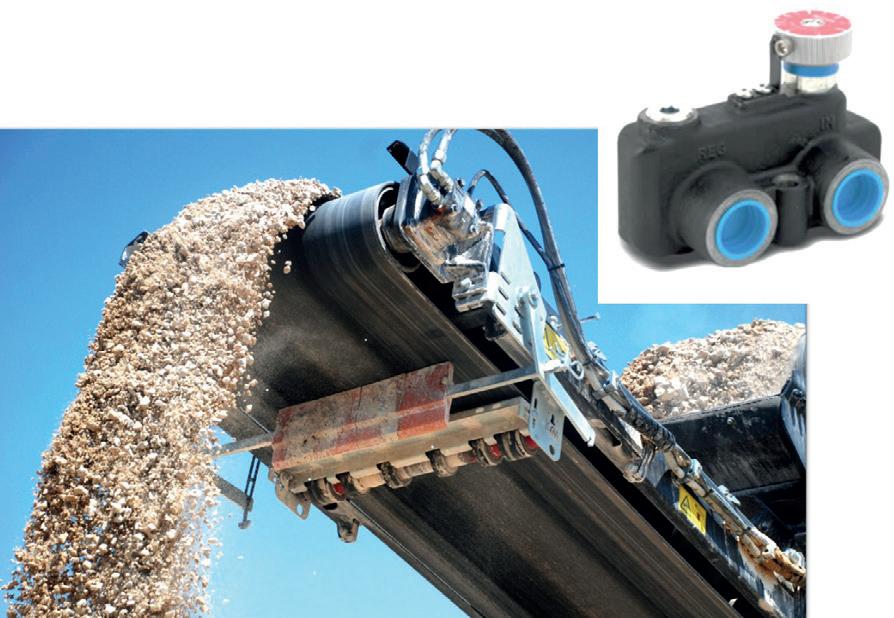
5 minute read
Rugged and reliable hydraulic control in a traditional industry
Andy Peacock, Engineering Manager Mechanical of Webtec talks about maximising productivity in crushing and screening.
Traditionally, material crushing has been carried out in permanent locations with the material being transported to the crushing plant by heavy duty tipping trucks. In recent times however, mobile crushing plant has often proved to be more cost effective. Such equipment can be transported to its required location and then moved by means of wheels or caterpillar tracks to any convenient position. The same principles used in crushing and screening are now also applied to shredding, washing and recycling machines used to shred tree trunks, clean aggregate or sort waste into different streams for recycling. Mobile crushing plant may use either electro-mechanical or hydraulic drive for the main crushing mechanism but auxiliary functions are most often carried out by means of hydraulic cylinders and motors, which are ideally suited to operation in harsh working environments. Auxiliary functions can include such things as track and conveyor drives, conveyor folding and positioning, screen and deflector plate operation etc.
Advertisement
Webtec has a long history in screening and crushing
For over 40 years Webtec has supported crushing and screening OEMs with rugged and reliable hydraulic valves used to control the speed of actuators with varying loads, such as conveyor drive motors. The nature of the job means that motors can see rapidly varying loads but continuous steady throughput is still required to ensure that all machines work harmoniously together. To ensure this happens machine designers have put particular emphasis on using pressure compensated flow controls, for which the Webtec range is world renowned.
The Webtec range also includes, two port flow control valves, three port priority flow dividers and mono-block directional, flow and pressure control valves all widely used on crushing and screening machines as well as in countless other off-highway mobile machines.
2-port vs 3-port valves
The Webtec VFC Series of pressure compensated flow control valves will ensure that the actuator speed remains virtually constant over all load conditions. Once set, the weather-proof adjusting knob can be locked in position to avoid any inadvertent adjustment. When using a fixed displacement pump, the excess flow not required by a conveyor drive can be diverted to another machine function while maintaining a constant flow to the conveyor. This can be achieved by using a VFD priority flow divider from the Webtec range.
Alternatively, the excess pump flow can be directed to tank at a pressure only slightly higher than the conveyor drive pressure, rather than full relief valve pressure. This ensures maximum system efficiency with simpler, fixed displacement pump arrangements. If remote speed adjustment is required a proportional version of the priority flow divider enables an electronic signal to be used to vary the priority flow.
Monoblock valves
A flow divider can also be combined with a directional valve to enable the priority flow to be switched between two conveyor drives. The CV120 combines a single directional, flow and pressure control in one compact, simple-to-install unit, with the opportunity for multiple valves to be connected in series using a high-pressure carry-over function with a secondary relief valve. Despite its compact design the CV120 doesn’t compromise on functionality, using the same pressure compensated flow control technology as used in the VFD range.
Auxiliary valves
When the movement of two unequally loaded actuators needs to be synchronised, for example with track drives or conveyor positioning, the
FDC Series flow divider/combiner can be used to ensure equal flows to or from each actuator, irrespective of load. Certain functions on mobile crushers need to be interlocked to prevent dangerous or damaging situations. For example, operation of the track drive may need to be prevented unless a conveyor is moved to a transport position. The mechanically operated SV/DV 80 diverter valve can thus be used to prevent flow to a certain function unless mechanically actuated by the appropriate section of the machine.
Condition monitoring and predictive maintenance
For pumps and motors which operate for long periods of time, continuously monitoring their performance can provide an early warning of a potentially costly failure. The CTA flow monitor can be installed in the pump outlet line to monitor pump flow rate and/or in the supply line to a conveyor motor for example. By comparing the pump or motor flow rate with its rotational speed a rapid assessment can be made of the component’s state of wear and action taken before a catastrophic failure occurs. In addition, the CTA flow monitor can be observed remotely via the machine’s telematic system.
The RFS 200 flow hours counter is a new device which can be used as part of a preventive maintenance programme. Installed in the feed line to critical hydraulic components, it monitors their actual usage time thus enabling routine maintenance to take place when the component is approaching the end of its useful life.
Excavator mounted solutions
For short-term tasks such as demolition work, where the task involved does not warrant the use of a dedicated machine, crushing attachments are available which can be mounted onto an excavator boom and used to process smaller quantities of material.
The DHM Series hydraulic multimeter can be an invaluable tool, not only for system troubleshooting but also for optimising the set-up of attachments such as crusher buckets. It enables the measurement of flow, pressure, peak pressure and temperature and the unit can then transfer data wirelessly for automatic calculation of hydraulic power and volumetric efficiency. Also useful for system troubleshooting is the HPM7000 Series portable data logger. This unit has a variety of different modes with the ability to log up to 16 million measured values per test at a variable interval from 1 ms.
Many of the leading OEMs in the crushing and screening industry have therefore come to rely on Webtec products owing to their performance and reliability while operating under the harshest of conditions found in this industry.











